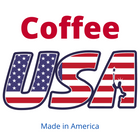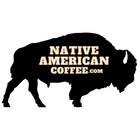Defining gourmet coffee is more than just adding vanilla flavoring to a coffee bean. It is an understanding that the coffee has been either grown under specific conditions in specific locations to create a natural, exquisite flavor or it has been altered during the roasting process to create a coffee unlike other coffees. What makes a gourmet coffee? This is a question that many coffee growers and roasters research and educate themselves on in order to grow and roast coffee beans that are considered gourmet and can then achieve premium pricing. Gourmet coffee for many people means flavored coffee. However, it is much more than flavored coffee and often flavored coffee might not be gourmet.
One of the most important factors in determining what makes gourmet coffee is the original, unaltered coffee beans taste, aroma and finish. This is predominately determined by the coffee beans growing location and conditions. For instance, Kona coffee is a gourmet coffee grown on the island of Hawaii, the rich volcanic soil and weather in the Kona district come together to cultivate one of the most premium coffees in the world. There are many other areas of the world that are known for growing gourmet coffees. These coffee plantations produce a coffee bean that does not need to undergo any type of flavoring or roasting alterations to be considered gourmet. Ethiopia, Columbia and Kenya are all known for producing premium gourmet coffee beans.
The roasting process is another factor that can make coffee gourmet. Most people are aware of light, medium and dark roasts. Gourmet coffee roasts are beans that have been roasted in a special way, often a trade secret of the company, that no other company is able to replicate exactly. There are companies that roast premium dark coffees with an extra kick. These bold coffees are gourmet favorites among many people. Others prefer a gourmet roast that is lighter than others or even a blended roast much like breakfast blends or Vermont country blends. Gourmet roasting takes time and experimenting by roasting companies to develop the perfect roasting process that goes beyond simply producing a typical coffee and producing one that qualifies as gourmet and can demand a gourmet price. Finally, flavoring can be a factor that makes a coffee gourmet. Flavored coffees can be found in practically any retail store that sells coffee; however, a gourmet flavored coffee is one that has been made with a high quality coffee bean as its base. If the coffee bean that is flavored is poor quality the flavoring that is added will only slightly mask the inferior quality. Many coffee roasting companies and distributors label their flavored coffee with a gourmet label when it is really little more than a fair coffee bean that has been flavored.
Gourmet flavored coffees start with a top quality bean then add flavorings to create coffee that is practically a work of art. Some gourmet coffees are labeled gourmet because of the variety of flavor combinations that no other company offers. What makes gourmet coffee is more than a label proclaiming it to be gourmet. Gourmet coffee is at the very least a premium coffee bean that cannot be found on the average coffee plantation. It is grown in a very specific region under ideal circumstances. Other gourmet coffees are gourmet because they add flavor combinations that are unique and present the palate with a tantalizing taste that is more than simply vanilla or hazelnut.






